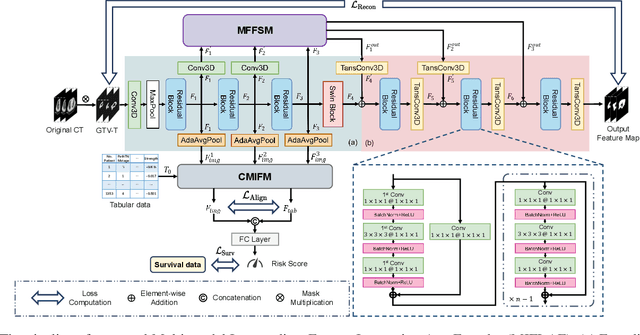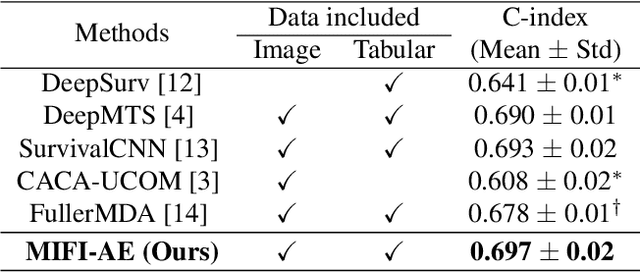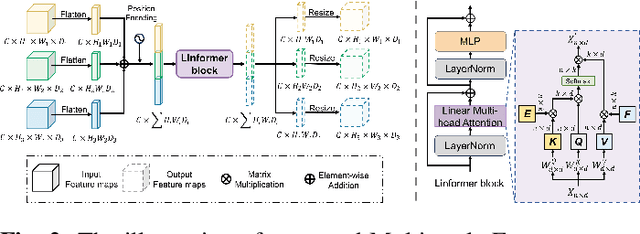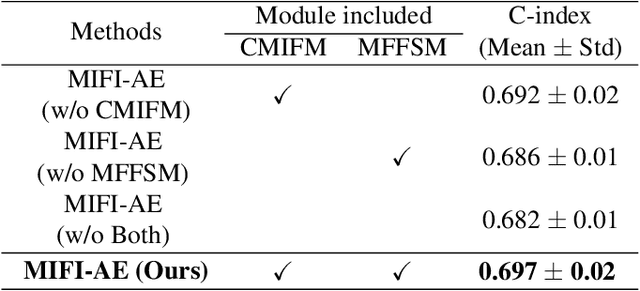Multi-modal Intermediate Feature Interaction AutoEncoder for Overall Survival Prediction of Esophageal Squamous Cell Cancer
Paper and Code
Aug 23, 2024



Survival prediction for esophageal squamous cell cancer (ESCC) is crucial for doctors to assess a patient's condition and tailor treatment plans. The application and development of multi-modal deep learning in this field have attracted attention in recent years. However, the prognostically relevant features between cross-modalities have not been further explored in previous studies, which could hinder the performance of the model. Furthermore, the inherent semantic gap between different modal feature representations is also ignored. In this work, we propose a novel autoencoder-based deep learning model to predict the overall survival of the ESCC. Two novel modules were designed for multi-modal prognosis-related feature reinforcement and modeling ability enhancement. In addition, a novel joint loss was proposed to make the multi-modal feature representations more aligned. Comparison and ablation experiments demonstrated that our model can achieve satisfactory results in terms of discriminative ability, risk stratification, and the effectiveness of the proposed modules.
 Add to Chrome
Add to Chrome Add to Firefox
Add to Firefox Add to Edge
Add to Edge